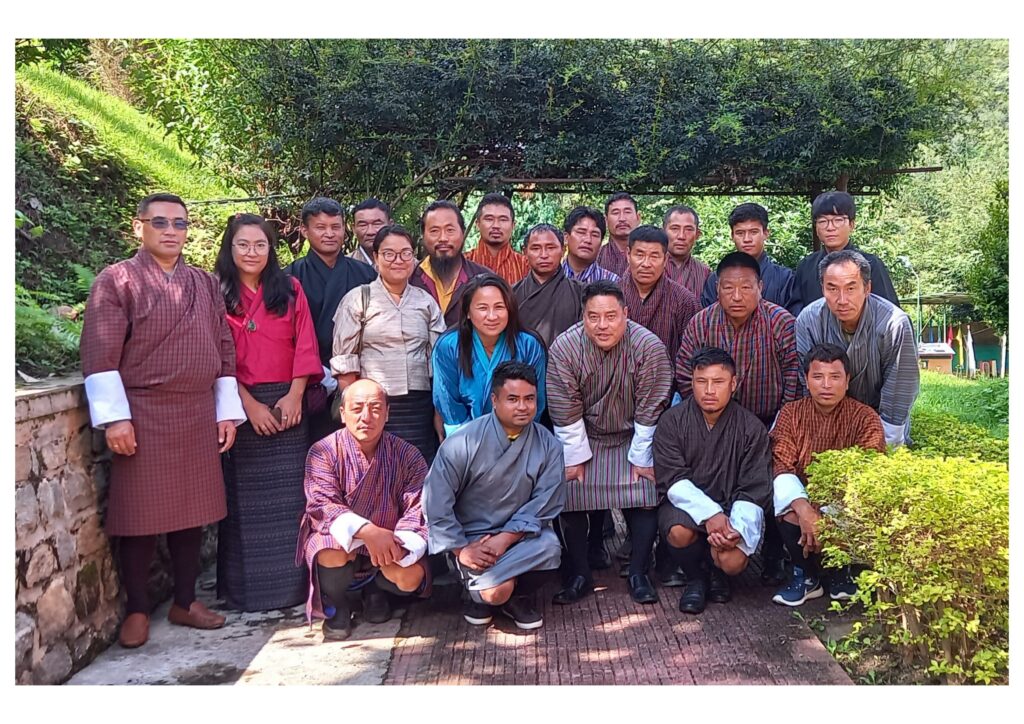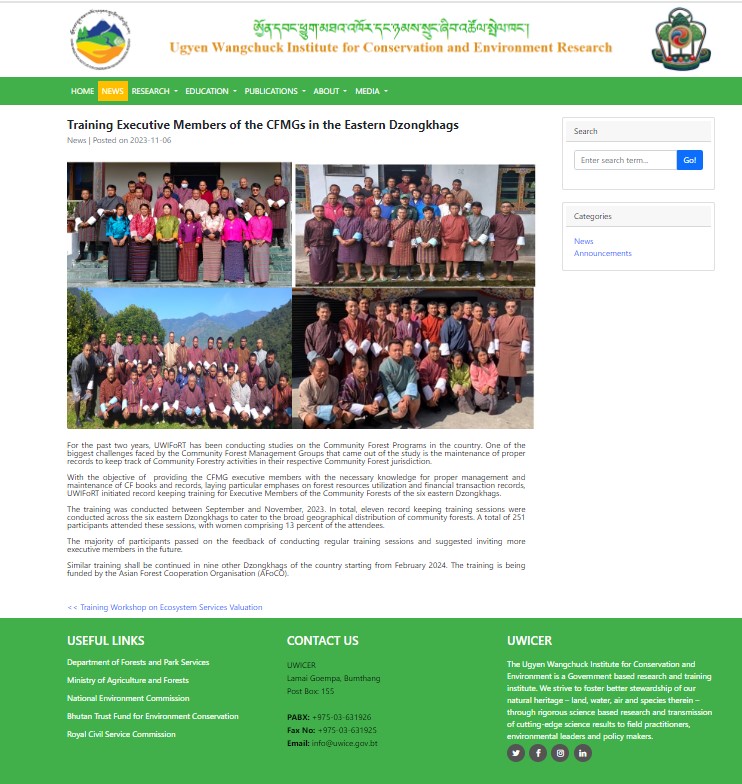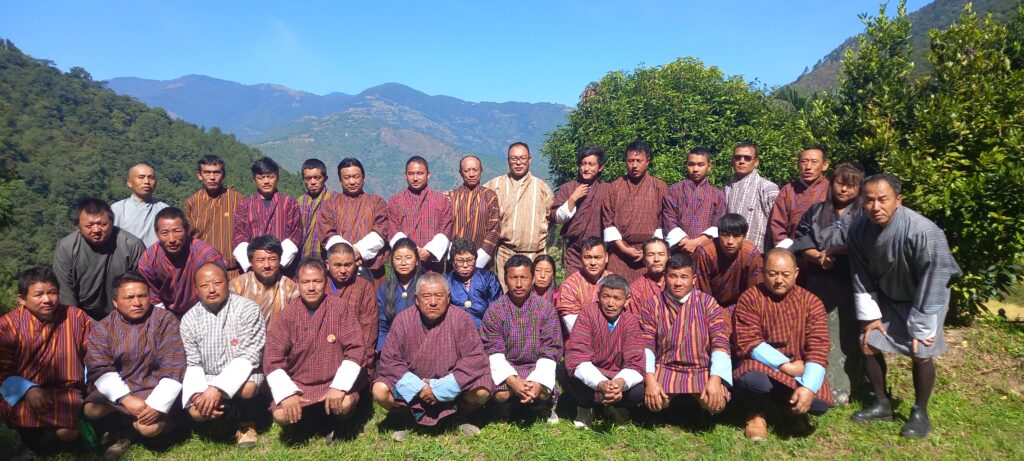Background
The initiative titled “Capacity Building of Community Forestry Management Groups (CFMGs) in Eastern Bhutan through Training on Proper Maintenance of Community Forestry Documents and Records” emerged from a comprehensive study conducted by the Ugyen Wangchuck Institute for Forestry Research and Training (UWIFoRT), in partnership with the Department of Forests and Parks Services.
This extensive study unveiled critical issues and hurdles confronted by CFMGs throughout Bhutan. Of the myriad challenges that surfaced, a notable one was the glaring deficiency within CFMGs to manage and maintain organized documentation pertaining to Community Forests adeptly.
The study provided illuminating statistics: 839 Community Forests spanning over 108,438.709 hectares of forest land, accounting for nearly 4% of the national forest cover. Moreover, it underscored the involvement of 34,167 households in CF management, signifying approximately 40.9% of Bhutan’s total rural households.
The core purpose of this project lies in rectifying the shortcomings in documentation by empowering the executive members of CFMGs through targeted training interventions.
Goals and Objectives
The primary goal of this training initiative is to enhance the capacity of CFMGs’ executive members to proficiently manage and meticulously maintain accurate records linked to Community Forests. The project’s broader objectives encompass:
Capacity Enhancement: Equipping CFMGs with the expertise to handle and update documentation concerning forest resource allocation, financial transactions, subsidiary records, and essential administrative tasks.
Effective Utilization: Enabling executive members to use adeptly Community Forest permits, record the utilization of forest resources, and report these usages accurately.
Financial Management: Developing proficiency in managing financial transactions, including the issuance and updating of money receipts, maintaining loan records, and generating comprehensive annual financial reports.
Subsidiary Record Management: Fostering capabilities in maintaining subsidiary records encompassing plantations, stock registers, meeting minutes, trade and transit of forest resources, labor contributions, and non-wood forest product (NWFP) invoices.

Project Outputs
Comprehensive Training Modules: The training program was meticulously structured, encompassing diverse facets of record-keeping within CFMGs. It comprised three-day theoretical sessions, hands-on practical exercises, guided discussions, and group activities.
Wider Participation: Initially aimed at 105 CF Executive Members from six eastern Dzongkhags, the project’s scope expanded due to additional funding. Ultimately, it accommodated 251 executive members from 196 CFs and 16 NWFP groups, surpassing the initial targets and providing multiple members from certain CFs the opportunity to participate.
Gender Representation and Training Feedback: Despite regional challenges impacting female participation, deliberate efforts were made to encourage gender diversity in the training. Feedback received highlighted positive responses and a desire for recurrent training sessions and broader participation from CF members.
Financial Management: The project demonstrated prudent financial management, efficiently utilizing grants from the AFoCO Secretariat and additional funds from DoFPS Headquarters.
This multifaceted initiative addressed immediate challenges faced by CFMGs and set the stage for future endeavors aimed at further fortifying the capacity and efficiency of Community Forestry Management Groups in six eastern Dzongkhags of Bhutan.

Conclusion
With the funding support from AFoCO, the training was initially targeted for 105 executive members from the Community Forests of the six eastern Dzongkhags. However, with additional funding support from the DoFPS headquarters through the “Sustainable Community-based Enterprise Development for improvement of rural livelihood in Bhutan” a 5-year project which is also funded by the AFoCO, the trainers from the UWIFoRT could conduct training for a total of 251 executive members from the six eastern Dzongkhags. The training was well received as is evident from the feedbacks received from the participants.
However, even with this training the participants still feel that more members of the CFs need to be trained on this CF record keeping. There is also a requirement of similar training for the executive members of other CFs in the country who will be left out of such training opportunities. This particular training is also required to be delivered to the Forest staff of field Divisions who are the key persons who guide the members of the community forest management groups
A lot of gratitude to the AFoCO for providing this grant and continued support in this is solicited so that the same training can also be extended to members of other CFs in the country.

This Report Article Contributed by Dendup Tshering, Principal Forestry Officer in Bhutan

